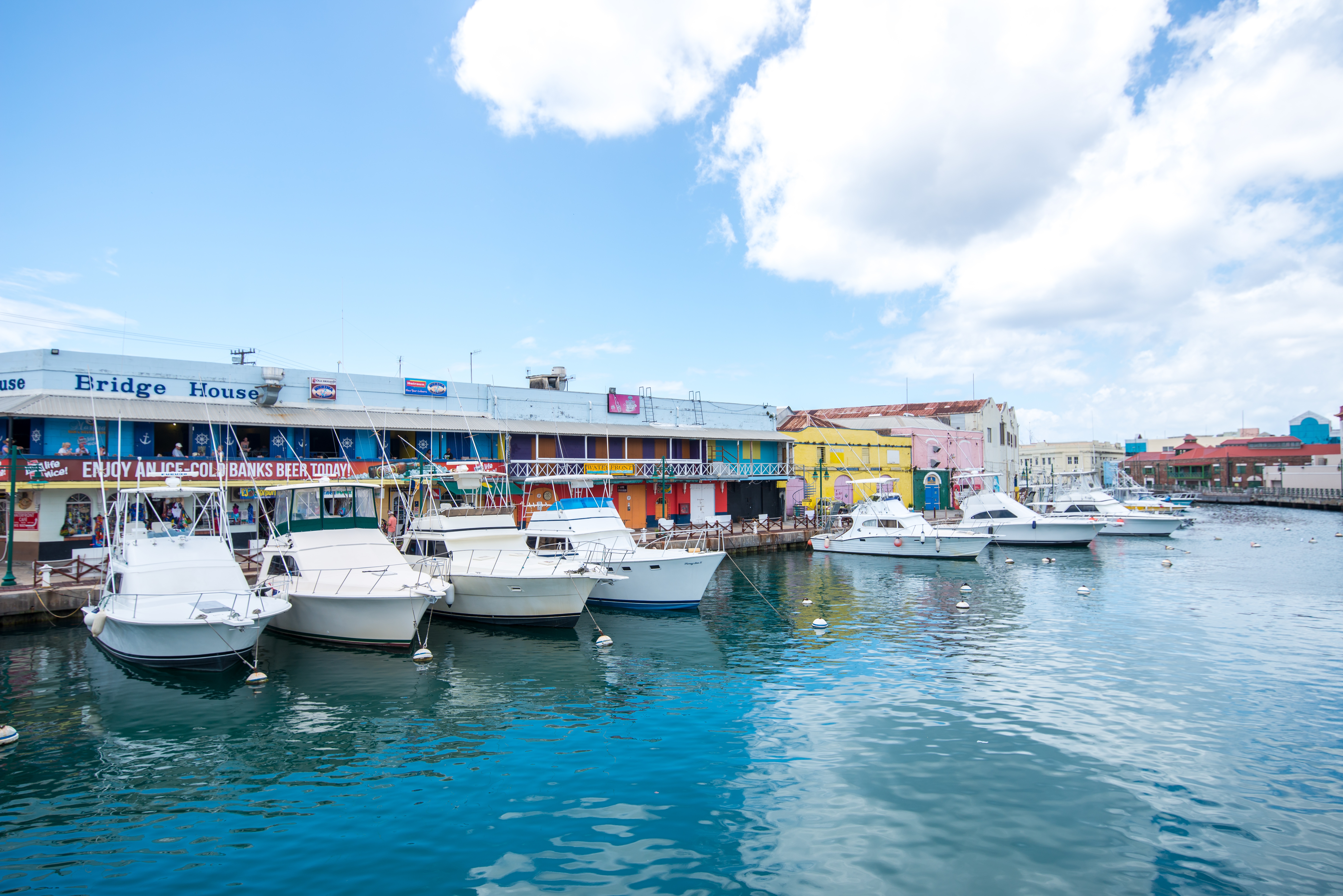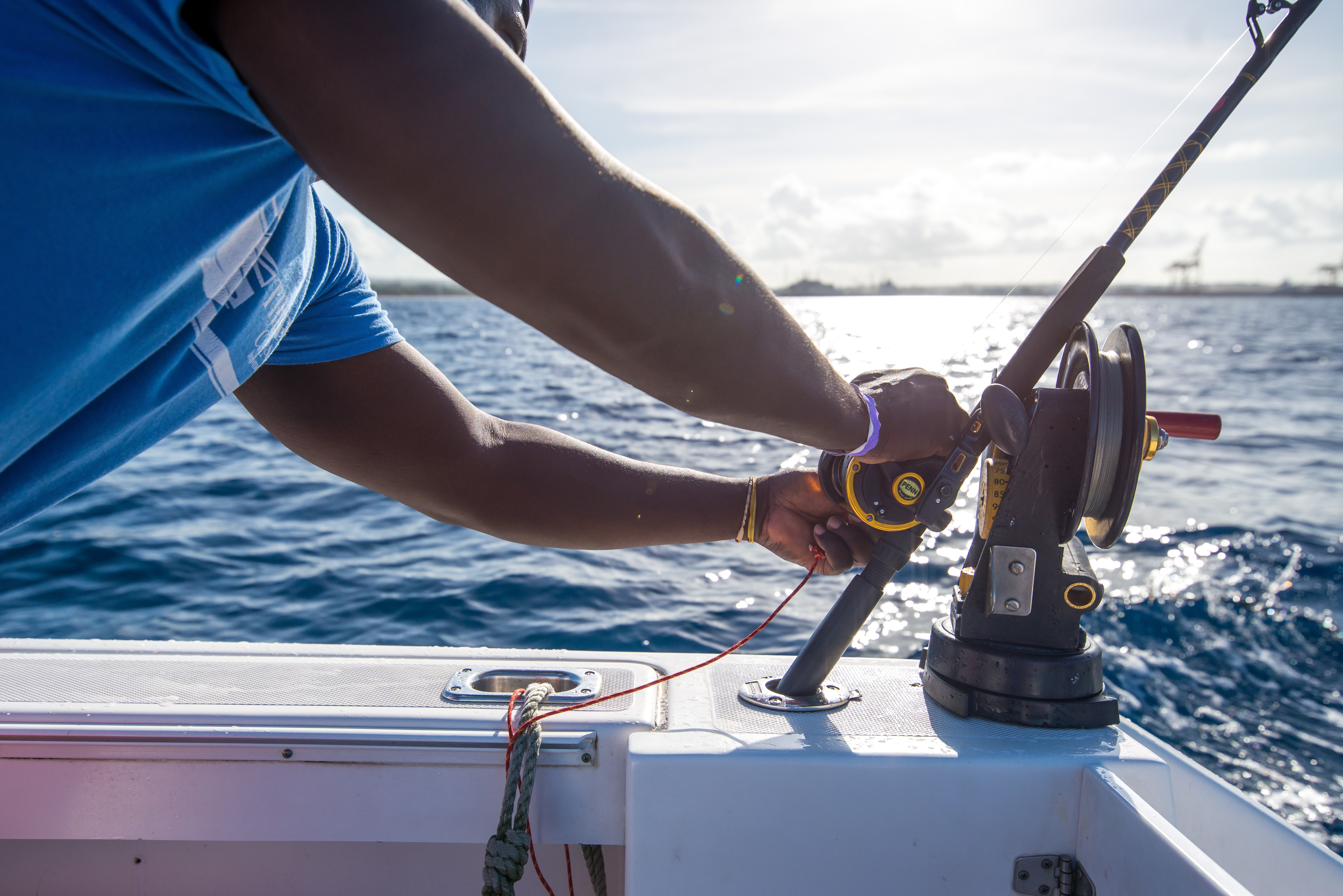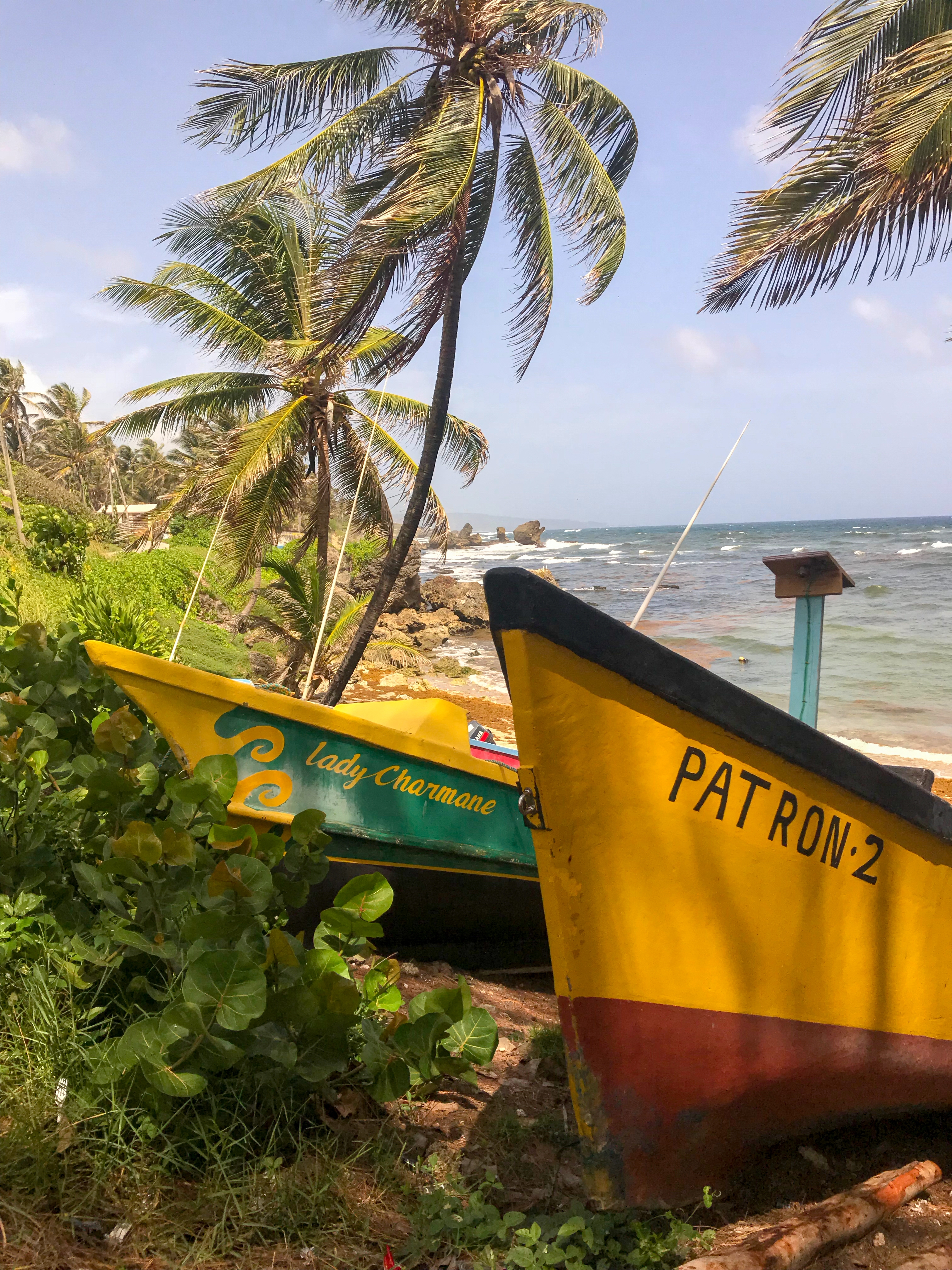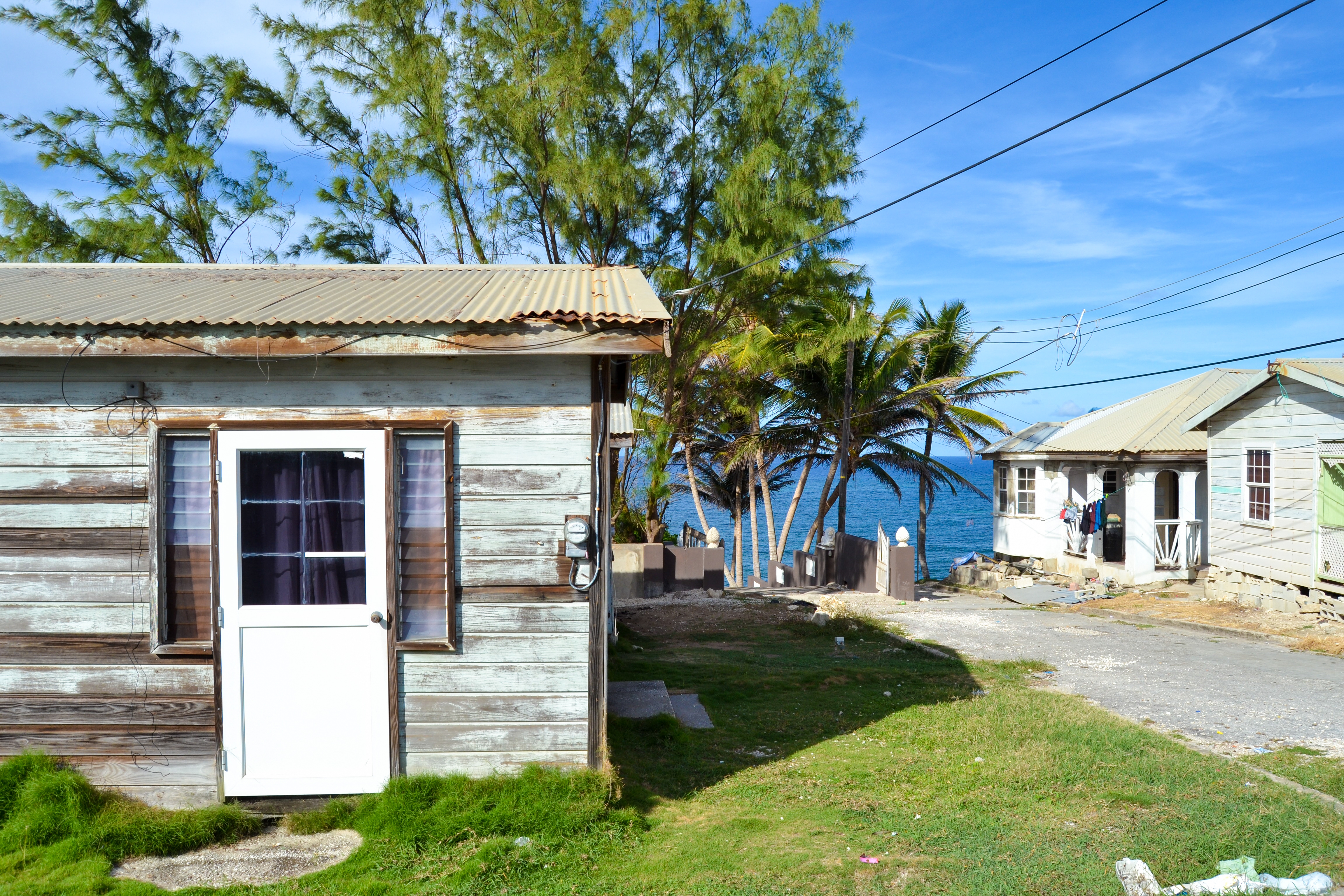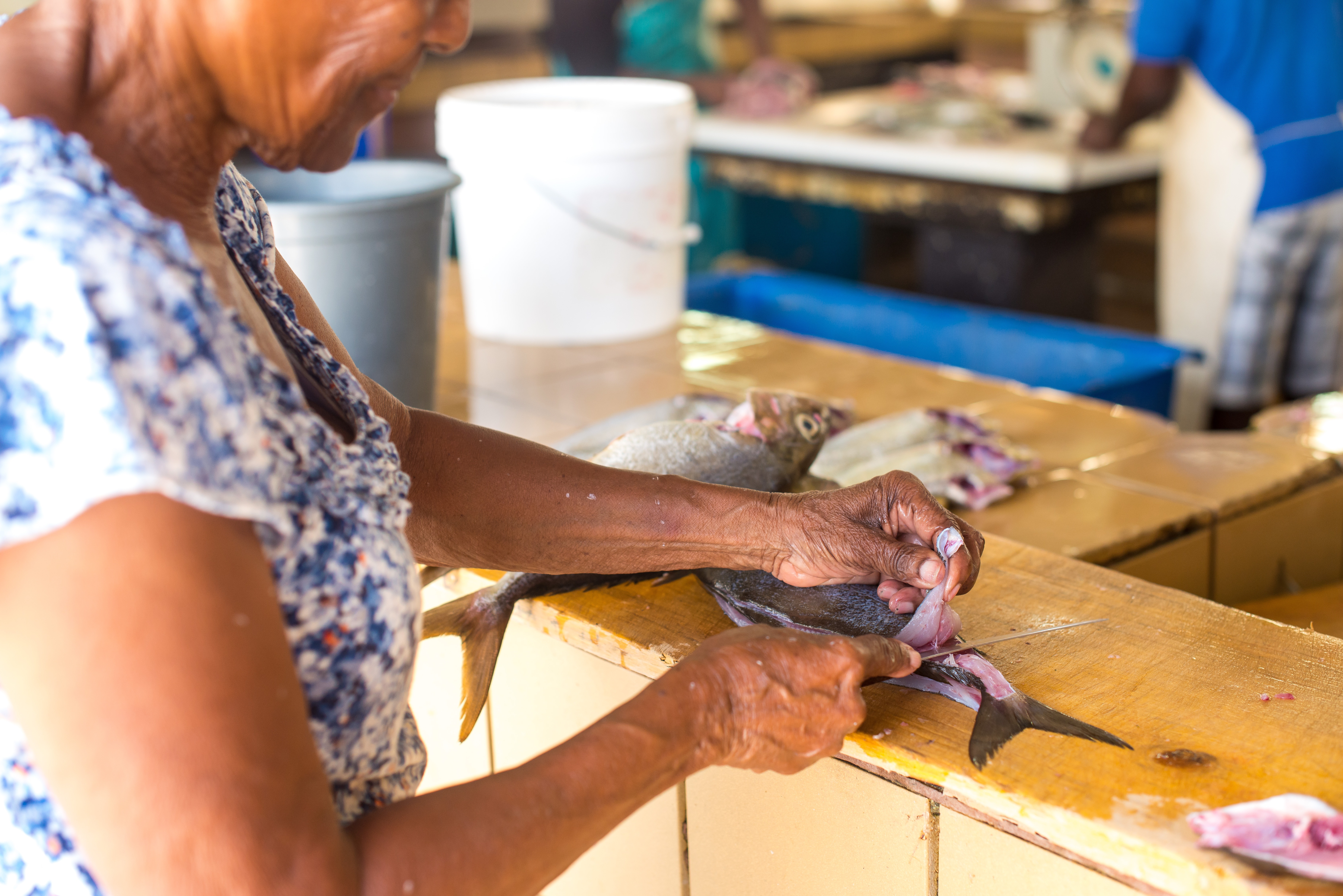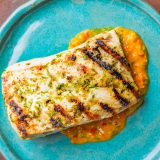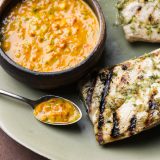Miss Evelyn leans back in a red plastic chair out in front of her house, a low pile of cinderblock in flaking swaths of bold orange and electric-lime green. To the side, rustling palm trees tilt away from the Atlantic trade winds. It’s a world away from the cookie-cutter resorts Barbados normally brings to mind.
Chunky dark sunglasses cover much of Miss Evelyn’s face, and though I’d come to her cliffside home as part of a meandering quest to learn the Caribbean way of grilling fish, it quickly becomes obvious that she’s a tough coconut to crack.
“I know what I’m doing,” she says slowly, with a half smile. “But I never tell anybody what I’m doing.”
What I already knew was that preparing fish the Bajan way (the word, referring to Barbados, rhymes with “Cajun”) involves two potent flavor treatments before and after the fish is cooked—usually grilled, often sautéed or deep-fried. The first is a marinade mostly based on an herbal, bracingly oniony seasoning paste that’s heavy on chives and a dozen more herbs and spices. The second is a hearty splash of shockingly orange hot sauce unlike any other, with a powerful mustard-turmeric base that cuts through its vinegary heat.
Evelyn Skeete makes both in plastic tubs in her garage and bottles them under the label Marley Vale, named after this small community hugging the remote and rocky east coast of the island. The matriarch of a sprawling fishing family, she raised six kids as a single mom and now owns a small fleet of 37-foot boats that go out to sea for weeks at a time, depending on how long the ice lasts in the hold.
I’d already had a taste of the two-saucing technique at the Oistins Fish Fry on the south coast. It left me wanting more. A lively and touristy cluster of multicolored fish shacks circling a stage, the fish fry turned out to be more social occasion than cooking inspiration. The grilled mahi mahi and swordfish I sampled at two stands were rubbery and bland, the hot sauce all heat and little flavor.
Andrew King, owner of Therapy Charters and a decidedly good home cook, had told me Miss Evelyn’s sauces were the real deal. He’d brought me to her place as the first step in showing me how it’s done. She’s waiting outside when we arrive, as if guarding the operation.
She speaks in short sentences cushioned by long pauses, and King ends up doing much of the talking in between. Her family has been fishing since before the tourist boom, when going out on the unpredictable ocean in long wooden boats was a matter of survival, not business. Miss Evelyn’s been making the sauces as long as she can remember, but she’s not sure when the bottling began, maybe eight or nine years ago. They do custom blends based on individual preference for heat, but my request for more details only gets me more generalizations. “As long as you love doing something, it will come out right,” she says.
She gladly opens up about another Bajan staple, her coconut sweet bread, an aromatic quick bread loaded with lard and sugar. But with the brick wall around her seasoning secrets intact, I head into the workshop with Miss Evelyn’s daughter, Sheri, to pack up a couple jars to go. The room is littered with empty buckets, the air sharp with the smell of hot peppers. She spoons a forest-green relish into jars, slaps on paper labels and seals plastic rings to the top with a hairdryer.
Then with classic Caribbean ambiguity, she fills in some gaps the labels don’t tell: “You gotta get your chives, onions and herbs, thyme, marjoram, sweet basil, celery, rosemary, oregano, garlic. And then the spices. Clove, black and white pepper, seasoning salt, vinegar,” she says, trailing off before she asks if she can get back to the day’s laundry. The hot sauce, already bottled, is simpler—blended Scotch bonnet peppers, onion, mustard powder, white vinegar, water, grated fresh turmeric and salt.
Evelyn Skeete's hot sauce recipe is a closely guarded secret. "I know what I'm doing," she says. "But I never tell anybody what I'm doing."
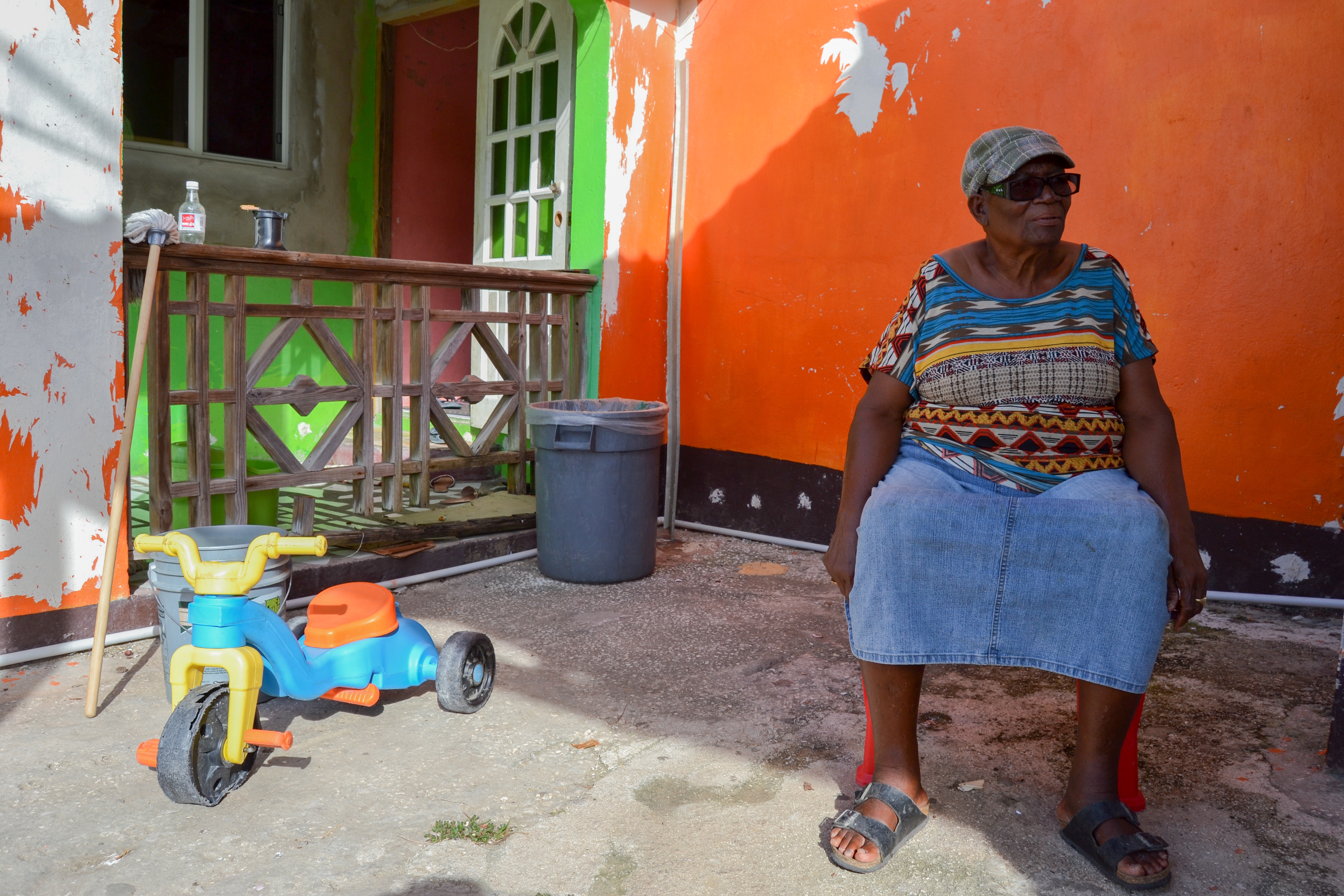
Armed with our necessities—and a two-pound hunk of homemade sweet bread—we head to King’s house, where he slathers thin fillets of wahoo with the seasoning paste. The marinade also includes the juice of two limes, salt, a healthy glug of golden rum and vegetable oil. Though King often grills his fish, this time he opts for a skillet, sautéing the fish for only about 30 seconds per side. The wahoo is meaty yet tender, herbal and faintly sweet from the rum. Decidedly tropical. The hot sauce adds so much more than just heat. It is tangy, fruity, earthy, almost musty from the mustard and turmeric.
Eating on the deck by the pool as waves crash on the rocks below, we watch as the setting sun turns the sky a shade darker than the pepper sauce. While knowing the scenery wouldn’t be replicable back at Milk Street, I figured a few tweaks would help us easily streamline the seasoning paste for a marinade that remained faithful to its Bajan inspiration.
Since wahoo is unavailable in the States, we settled on mahi mahi for its similar taste and texture. For the marinade, which came together quickly in a food processor, we pared back the ingredients to the essentials. Fresh chives, thyme, yellow onion, garlic and allspice. And rather than golden rum, which isn’t a common pantry item, we substituted a teaspoon of brown sugar to replace its sweetness and balance the sharp taste of the allium and citrus. A tablespoon of white vinegar reinforced the brightness without adding too much acidity.
For the hot sauce, we stuck mostly to tradition but blanched seeded Scotch bonnets (habaneros also work well) along with garlic, which tempered the overpowering spice without diminishing the peppers’ fruity flavors. We also liked the additional fruitiness from lime juice, and a touch of brown sugar smoothed out the other potent flavors.
After a 30-minute marinade while we prepared a medium-hot grill, the fish cooked up in just 5 minutes per side. It was succulent and herbal, with the deeper flavor of our Bajan hot sauce. A straightforward take on our tropical treatment of simple grilled fish.
More From Barbados
